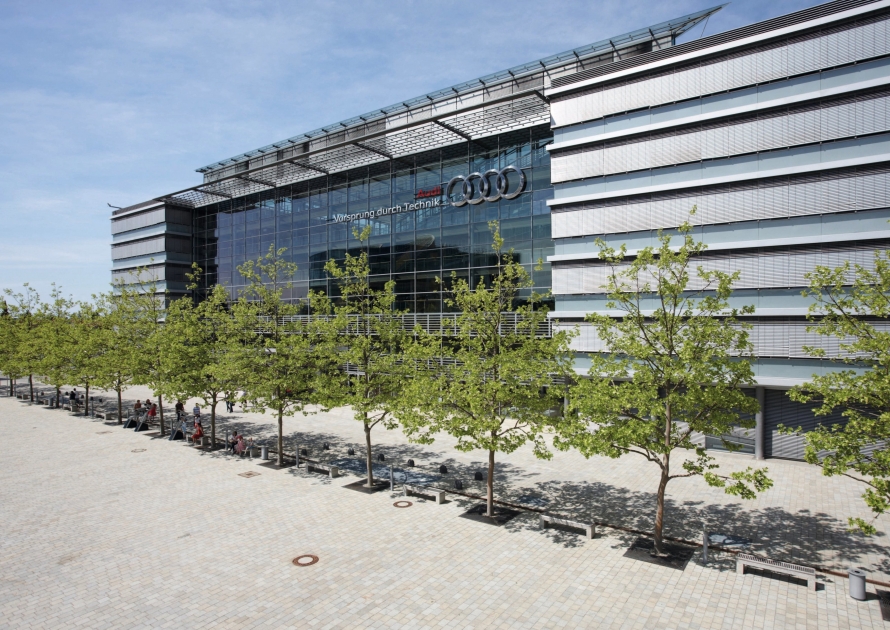
Audi appoints four new Board of Management
There is to be a new composition of the Board of Management of AUDI AG as of September 1. The area of Finance, IT and Integrity will be the responsibility of Alexander Seitz and the area of Marketing and Sales will be headed by Bram Schot. Wendelin Göbel will be in charge of Human Resources and Organization and Peter Kössler will be responsible for Production and Logistics. Matthias Müller and Rupert Stadler see the change at the top as creating the right conditions for the company’s future success. General Works Council Chairman Peter Mosch emphasized that the transformation at Audi should be shaped so that both business success and the interests of the workforce are sustainably balanced.
Alexander Seitz (55) will succeed to Axel Strotbek, who has been Board of Management Member for Finance, IT and Integrity at Audi since 2007. Seitz began his career at Daimler-Benz AG, where he held several positions in the financial and commercial area as well as in strategy and procurement. In 2005, he moved to Volkswagen AG in Wolfsburg as Head of Group Procurement Powertrain. Following positions for the Group in South America, he was appointed First Vice President and Commercial Executive Vice President of SAIC Volkswagen in 2013.
The successor to Dr. Dietmar Voggenreiter as Board of Management Member for Marketing and Sales will be Bram Schot (56). Born in the Netherlands, he has been a Member of the Management of Volkswagen Commercial Vehicles for the area of Marketing and Sales since 2012. In 2011, he moved from his position as President and CEO of Mercedes-Benz Italia to the Volkswagen Group, where he was in charge of strategic projects in the area of Group Sales.
Wendelin Göbel (53) is to be the new Board of Management Member for Human Resources and Organization. He will take over from Thomas Sigi, who has held the position since 2010. Göbel has been Head of the Board of Management’s Office of the Volkswagen Group and of theVolkswagen brand since 2007 until 2015. Before that, he held various positions at AUDI AG and in the Volkswagen Group, including in Procurement Project Management. From 2003 until 2007, he was Head of the Board of Management’s Office of AUDI AG as well as a member of the Audi Strategy Committee.
Peter Kössler (58) will be the new Board of Management Member for Production and Logistics. Born in Ingolstadt, he has until now been Chairman of the Board of Management of AUDI HUNGARIA Zrt. From 2007 until 2015, he was the director of Audi’s main plant in Ingolstadt. In that position, he was responsible at the site in Ingolstadt for all production-relevant areas and site-specific topics such as plant logistics, environmental protection and plant security. Kössler will take over the Board of Management position from Dr. Hubert Waltl, who has been in charge of Production and Logistics since 2014.
Matthias Müller, Audi Supervisory Board Chairman and VW CEO, thanked the departing Board of Management members for their work: “The departing Board of Management members helped to shape Audi’s positive development. Audi has recently passed through a difficult phase, but has all the prerequisites to be successful also in the mobility world of tomorrow. Together with the workforce, the new team in the Board of Management will systematically push forward with Audi’s transformation towards the future.”
Audi Board of Management Chairman Rupert Stadler also thanked the departing colleagues for their professional commitment. Stadler emphasized the importance of critically reviewing the current situation together with the Supervisory Board. “Our shared goal with the new Board of Management team and a strong workforce is now to set the course for the future and to systematically move forward with our transformation towards e-mobility, digitization and mobility services. Our growth plan and Strategy 2025 provide the roadmap.”
Peter Mosch, Chairman of the General Works Council and Member of the Supervisory Board of AUDI AG: “The past weeks show that an open and critical dialog is an essential basis for the future of Audi. It has become clear that this is about the consistent orientation of the company. That includes the optimal utilization of the plants’ capacities. The upcoming transformation must be shaped so that both business success and the interests of the workforce are sustainably balanced.”



























